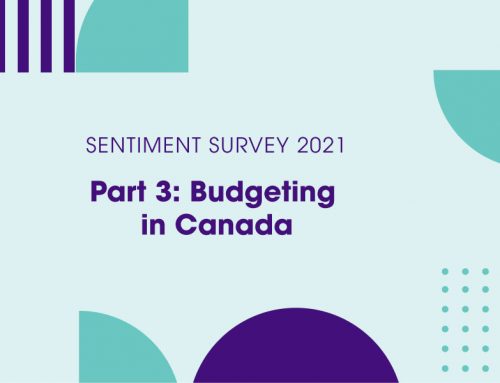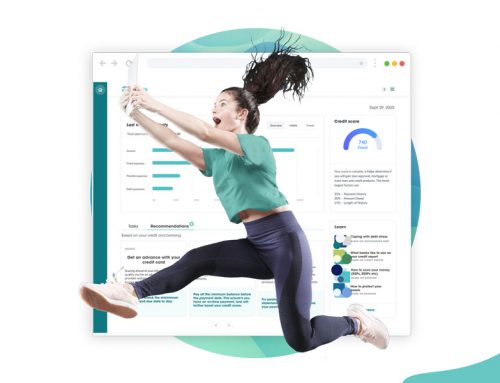November marks the 10th anniversary of Financial Literacy Month in Canada. This month, we want to help you on your journey to learning about your personal finances. Firstly, let us provide you with industry tips on three key areas of your personal finances: Credit, Debt and Budgeting. This week, we will discuss How to Budget Your Money.
We recently conducted a survey and discovered that 52% of respondents do not currently budget. But when it comes to juggling your housing costs, grocery bills, health care, credit card and debit repayments, how should Canadians handle all of this? The simple answer is to make a budget. Let us show you how.
A budget is a plan you make for the money you have and earn. It means that every hard-earned dollar you make goes towards the payments it needs to go to. Most importantly, it allows you to stick to a plan without falling into the financial struggle while allowing you to meet your savings goals. Likewise, it ensures that you are using your income responsibility. But for many, a budget can be difficult to get started with.
In times of financial uncertainty, a budget allows you to plan for the unexpected and ensures that if sudden job loss, illness or let’s say, a pandemic happens, that you’re prepared to get by. Getting started with your budget may seem complicated, but let’s how you can budget successfully in this week’s blog post.
What Is A Budget?
As we mentioned, a budget is defined as a financial plan for a defined period, often one year. It helps you figure out how much money you receive, spend and save. For example, it allows you to clearly visualize your income and what you spend daily, weekly and monthly. Above all, your budget will allow you to discover what you need to spend and what you want to spend. Identifying your necessities versus your wants are important when it comes to a budget and allows you to save more money and set spending limits.
Here are some common ways a budget can help you:
- It can help you find ways to pay down your debts.
- Budgeting allows you to reduce costs and save more for things that are more important to you.
- Allows you to live within your means.
- Helps you to reduce financial stress.
- A budget will help you feel in control of your money.
Why Should You Budget?
While for some people, starting a budget may not seem important. But by deciding to budget, you are almost twice as likely to report no financial worries compared with spenders. It’s also evident that many people who budget, don’t live paycheck to paycheck and tend to have less stress and struggle with their finances.
Firstly, before you begin budgeting, it’s important to define your goals in order to stay motivated. Many people budget for a variety of reasons such as to save for a big purchase, to reduce overspending habits, and to get out of debt. Make sure to write down your goals and be specific. This way, if you feel yourself beginning to slip up in your budget, you can remind yourself why you’re doing it.
How To Make A Budget?
When you’re about to start planning your budget, there are a few things that you must learn about your income before beginning. Firstly, it’s important to figure out what your after-tax income is. If you receive a regular paycheck, that is more than likely your after-tax wage. From here, you can then follow these steps and begin designing your budget. Check it out:
Check out your spending habits in your accounts
Whereas it may seem like the dream to be able to spend nothing and save everything, that’s often unrealistic. When creating a budget, you must recognize and identify the money you need to spend every month. But remember, somethings we think we need, may not be essential.
Firstly, you must look through all your active accounts and figure out what you’re spending your money on. Most experts will recommend tracking your spending for at least 30 days before beginning your budget. This way, you will give yourself a clear picture of where your money is going. You can track your spending habits through an app, spreadsheet or simply using your bank statements.
In this stage of planning your budget, here is where you identify what you must spend (housing, electricity, food) versus what you can be more flexible on (shopping, restaurants, cinema).
Use your calendar wisely to budget for irregular expenses
While tracking your spending will show you what you spend on a regular basis, it won’t factor in the irregular expenses that may only happen once, twice or three times a year. We often get caught off guard when it comes to birthday presents, holiday gifts, medical exams, veterinary expenses and more.
Here, you can check your accounts and try to plan your budget to expect the unexpected. This way, coming up to those important occasions, you will have money already set-aside to take into consideration these events. To help manage this, you can add to the calendar of your phone birthdays, holidays and more to help remind yourself.
Calculate your income
Budgeting is about utilizing your income and making sure you don’t overspend. In order to this, you must consider all of your incomings. This could include your wage, side gigs, child support /alimony, income from investments or more. Everyone’s income is unique to them, so it’s important you sit down and list everything you earn.
At times, your income may vary each month. This may make it feel harder to create a budget that is sustainable from month-to-month. The best way to approach a varied income is to decide on a salary and base your budget on this. You could simply base it on an average of your income or underestimate your average. This way, you will be able to avoid the risk of overspending.
Those with irregular incomes could also live off last month’s income, updating their budget each month based on what they earned the month prior.
Identify your financial goals
When figuring out why and how to budget, it’s important to have clear financial goals in mind. There are many reasons why anyone should budget, but you need to ask yourself why are YOU budgeting? Most importantly, your budget should reflect what you want to achieve in life. This may be reducing your spending or saving for a vacation. Maybe you feel as if you’re ready to purchase a house or you want to take control of your finances.
To identify your goals, you should write down exactly what you want to accomplish. You should be specific, so for example, write how much you need for a down payment on your house instead of “save for a house”. It also helps to include deadlines. In other words, you should write “save $80K for a house by 2022”. This way, you will feel a purpose and an end goal when you’re budgeting.
Choose your budgeting plan
There are many different ways you can begin budgeting. One of the most popular ways of budgeting is the 50/30/20 budget. In it, you spend roughly 50% of your after-tax dollars on necessities, no more than 30% on wants, and at least 20% on savings and debt repayment.
Over the long term, someone who follows these guidelines will have manageable debt, room to indulge occasionally, and savings to pay irregular or unexpected expenses and retire comfortably.
Schedule a monthly budgeting review
Finally, it’s important to check in with your budget and make adjustments as needed. See how you did each month, where you overspent, and if you had extra leftover. Then, adjust your budget according to what you’ve learned.
Your life will change over time so changes will always need to be made. Once you’ve got a good baseline, making tweaks will be easy!
How Maestro by Marble can help you
Our Maestro courses make financial literacy and education easy, accessible and easily applicable to your own personal finances. Likewise, each module will provide you with a further understanding of your personal finances. Each course allows you to test your knowledge and understanding of our content. But here’s a bonus – you can go back and take our courses over and over again.
We recently conducted a survey and discovered that 72% of respondents did not know how to budget. It’s clear that many people understand that budgeting is essential to keep your finances in check. Above all, we’re often unsure where to start and how to create an effective budget. Because of this, Budgeting can help you track your spending and save money for a mortgage, education, emergencies and more.
Budgeting can be confusing, and especially when we’re unsure of exactly where to start. That’s why we created our MyBudget Maestro course. Our course includes several modules that will help you kick-start your budget. This includes modules on how to track spending, how to create money goals and much more. Each course will include a video and a quiz at the end of each module to test your knowledge. To explore this course, visit our Maestro hub online here: https://learn.mymarble.ca/bundles/mybudget.
How MyMarble can help you
At Marble, we want to help you get your finances in check and assist you in achieving your financial goals. The MyMarble Dashboard empowers you to review your current spending and credit standing, highlighting opportunities for you to maximize your monthly reports. You can find out more about how MyMarble can help you track your spending online here: https://mymarble.wpengine.com/how-portal-works/






